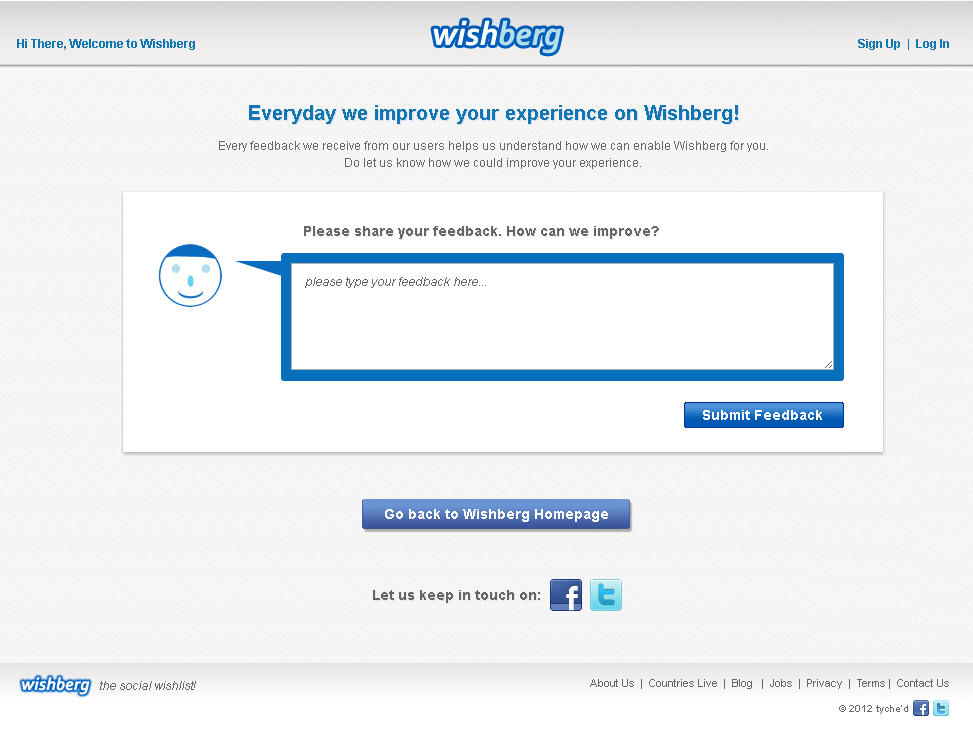Last year (2011) learning coding was hot, may be it still is. Sites like Code for America came up; startups like Codecademy, Learnstreet, Udacity, etc came up that were focusing on building products that enabled others to learn coding in an interactive way. Then it looked like a kind of movement, a revolution in making.
Being a startup founder some of those effects trickled down to India – that made me seriously consider coding. And there were some other reasons as well. We started Wishberg by outsourcing product development to another company. As deadlines were missed repeatedly, this whole ‘founders should be coders’ effect started growing on me.
During this phase I did two things a.) started hiring our own engineering team b.) learn coding inspired by this noise. I started learning very enthusiastically to an extent that my bio read that I was learning to code. Going through multiple forums, registering on these websites, taking lessons on LAMP stack and so on. A bit of background, being a engineering student (though Mechanical) – I had some basic coding background. Few years back, I even built some basic websites, did a bit of javascripts, etc.
As we started hiring engineering talent I asked myself two questions –
- Will I ever come up to the level of proficiency that matches our engineering team?
No. I was no where close to them.. while I was doing ABC of coding, our team was super involved in deploying code, implementing Redis / Node.js, building scalable architecture, mobile infrastructure and so on. I didn’t want my team to tell me I suck on programming (which I knew I did anyway). More importantly, I wanted the team to focus on building our product and not spend timing teaching me code or correcting my code. - Will I ever hire anyone who has learned programming through online sites?
No
I also checked with few technical founders who raised investments; few agreed that being a tech founder was probably a added advantage while raising money. But many of them also mentioned that post investment they spent more time finding product-market fit, doing business, improving their product, user experience, managing investors (many a times!) and eventually spending lesser and lesser time on coding themselves.
Eventually all startup founders end up focusing only on consumption side of product (front end user experience, improving funnels and conversion metrics) than the one under the hood. This is when I gave up my decision to learn coding and started focusing on learning design (user design and user experience) which is as core to product as technology is. I started spending more time understanding design tools, design patterns and implementing them on Wishberg. I am no where saying underlying technology, architecture, speed, and scalabilty are not important.
For online businesses, there is no doubt scarcity of good engineering talent; but there is more scarcity of product designers and even much more scarcity of product managers. Startup founders knowingly / or unknowingly start getting into product management role.
I have been a product guy for about 7 years and now feel that I should have learned design long back. Our team not just gets product documentation from me, but also product designs including all scenarios and exceptions. There is a certain clarity of thought which engineers appreciate and exactly know what is to be built – which save lot of time while shipping code / features. Every month, we look at data, un-design by removing clutter, remove additional clicks and aim to improve conversions on every step.
Geek Example – The 2012 Formula 1 Season had 12 teams of which 4 had the winning Renault RS27-2012 engine on their cars. Yet there was only one winner – The Red Bull Racing team. The original Renault team (now Lotus Renault GP) which manufactured and supplied the RS27-2012 engine to Red Bull team stood fourth in overall 2012 championship. In fact Red Bull won the championship for last 3 seasons with the Renault engine. What really mattered – the product RB8 chassis. More importantly the people driving the product, its team – drivers Sebastian Vettel & Mark Webber, Team Principal and Chief Technical Officer.
Concluding Notes:
What engine you have under the hood (technology) matters. What car / chasis the engine drives (the product) matters more. But what matters most is who is driving / leading it. Don’t get over obsessed with technology, focus on product & design.
So all those who complimented us on Wishberg‘s product design & usability… need a hint on who was the person behind it? Yours truly.
